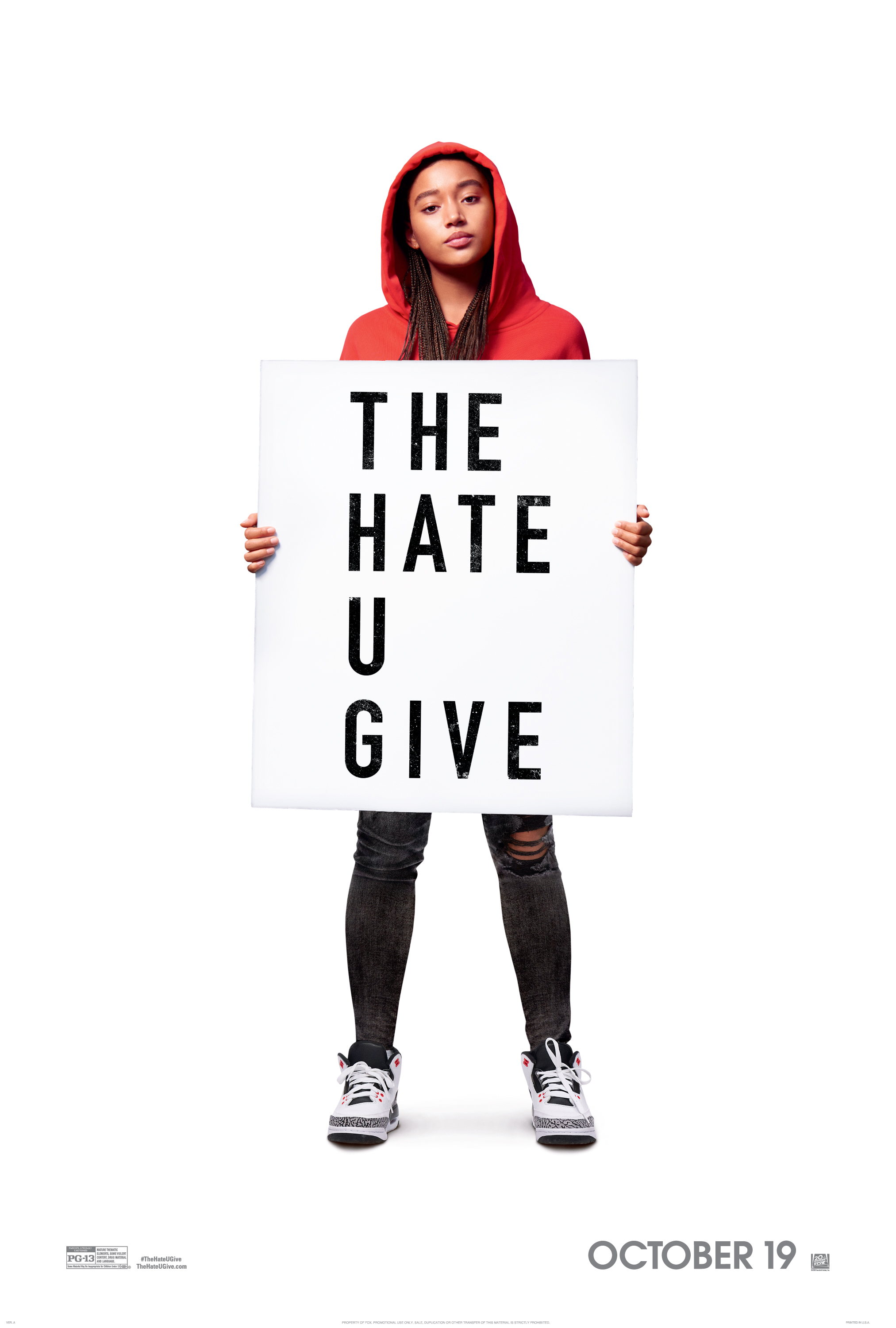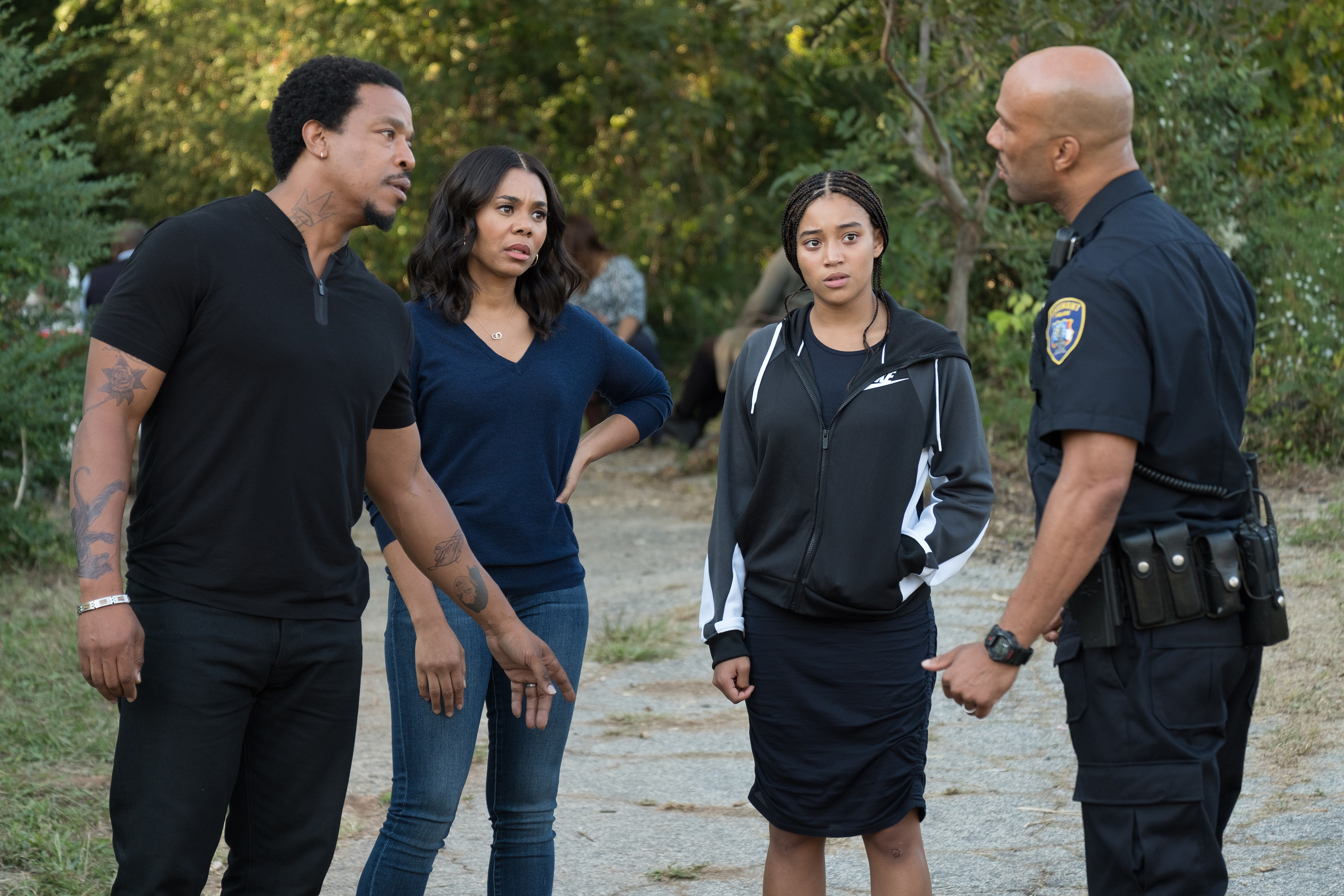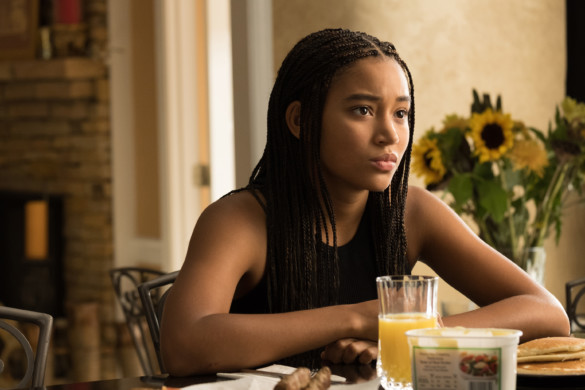“The Hate U Give” is a moving, authentic adaptation of Angie Thomas’ best-selling novel
By Nina Tabios
When Amandla Stenberg walked out to receive her Mill Valley Film Festival award from Zoë Elton, MVFF director of programming, audience applause rained down. As it turns out, the presenter explained, Stenberg’s name means “power” in the South African Nguni language, and her performance as Starr Carter in “The Hate U Give,” is an extension of the power she was born into.
“My mom gave me that name with a lot of intentionality; she’s a really powerful black lady, who understood there’s a lot of power in word and intention. She gave me that name with the hope that I would strive toward that in my life,” she told the audience at “The Hate U Give” screening at CíneArts Sequoia on October 7.

Courtesy of Twentieth Century Fox.
In the film, Starr must confront the realities plaguing her black community after her childhood friend Khalil (played by Algee Smith) is shot and killed by a white police officer. Despite warnings and threats to her family to dissuade her from testifying, Starr goes against the neighborhood snitching code and finds strength in choosing action over complacency in her fight to find justice for Khalil.
“And that’s what this film is about,” Stenberg continued. “Standing in your truth, in your power, in your intention and not succumbing to institutions and structures that try to make you believe that you are not capable of being a conduit for that power and that light and the shine that Starr emits.”
Based on Angie Thomas’ New York Times best-selling novel of the same name, George Tillman Jr.’s film adaptation brings to the big screen a young girl forced to grow up too soon in light of a tragedy, but in doing so finds empowerment to inspire the marginalized people in her fictional suburb of Garden Heights. When audiences first meet Starr, she’s juggling a double life: as a result of the surrounding poverty and violence, Starr’s parents—Maverick and Lisa Carter, played by an outstanding Russell Hornsby and Regina Hall—send her and her brothers, Seven and Sekani, to Williamson Prep, a private school located in another part of town.
The school represents everything Garden Heights is not: affluence, wealth, white people. Stenberg plays Starr as a master code-switcher, keeping her blackness at bay, stifling it with charm and humor even when her white peers adopt it for cringe-worthy cool points. But when the aftershock of Khalil’s death eventually catches up with her at school, Starr is forced to reckon with who she’s been presenting herself as and who she really is. During a press tour stop in San Francisco, Stenberg shared that she hopes viewers, especially young black girls, can see themselves in Starr.
“I hope that [the film] specifically acts as a place for black communities to grieve, to feel seen and heard, to feel honored and to honor and process their own experiences and their feelings,” Stenberg said. “We don’t always get to do that as black communities, we’re always pushing through persecution.”
A key part in this effort is rounding out the characters directly in Starr’s orbit, especially her family. According to Hornsby, that starts with casting actors “who possess the humanity of spirit” to develop whole, multi-faceted individuals.

L-R: Russell Hornsby, Regina Hall, Amandla Stenberg, and Common in Twentieth Century Fox’s “The Hate U Give.” Photo Credit: Erika Doss.
In order to play Mav, Hornsby said he sequestered himself for 30 days to mimic Maverick’s time spent in prison, building upon that experience through source materials, books, and music. He was constantly in contact with Tillman, collaborating on Maverick’s layers, how he should walk, talk and his thought processes as a man, and consequentially, a father.
“Maverick was also part of two worlds and through that, he came to know himself really well,” Tillman said. “His experiences and the change he went through enabled him to give strength to his children, he’s a pivotal part in Starr’s successes… In most films, a guy with braids and tattoos is supposed to be the bad guy.”
“The Hate U Give” doesn’t resolve Khalil’s death or cure the cycle of poverty, drugs, and gangs or police brutality in Garden Heights. But what the film does is offer a window into the humanity of the people and voices that have been shuttered in Hollywood for far too long. Along with other recent titles (“Moonlight,” “Sorry to Bother You,” “Black Panther”), “The Hate U Give” is an authentic and moving entry into today’s plethora of stellar black filmmakers.
“I hope that seeing it in a personal narrative can maybe shift some minds around on what these experiences must be like, or at least create some sort of empathy,” Stenberg said. “I hope that it just further validates the notion that our stories are vivid and colorful and worthy of being told and that when you give us the room to express our artistry, you can create something that is truthful.”
“The Hate U Give” is now playing in San Francisco.
